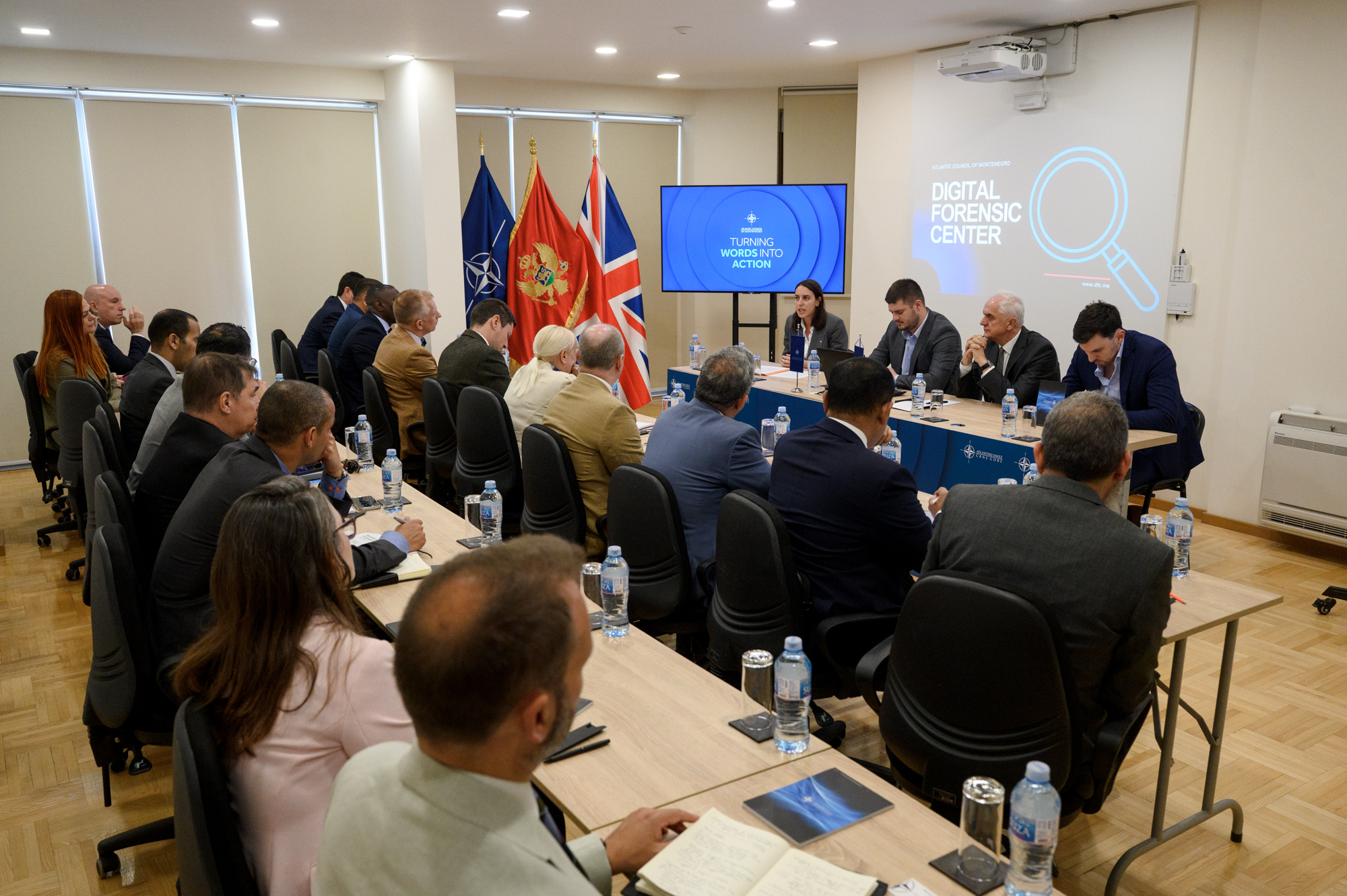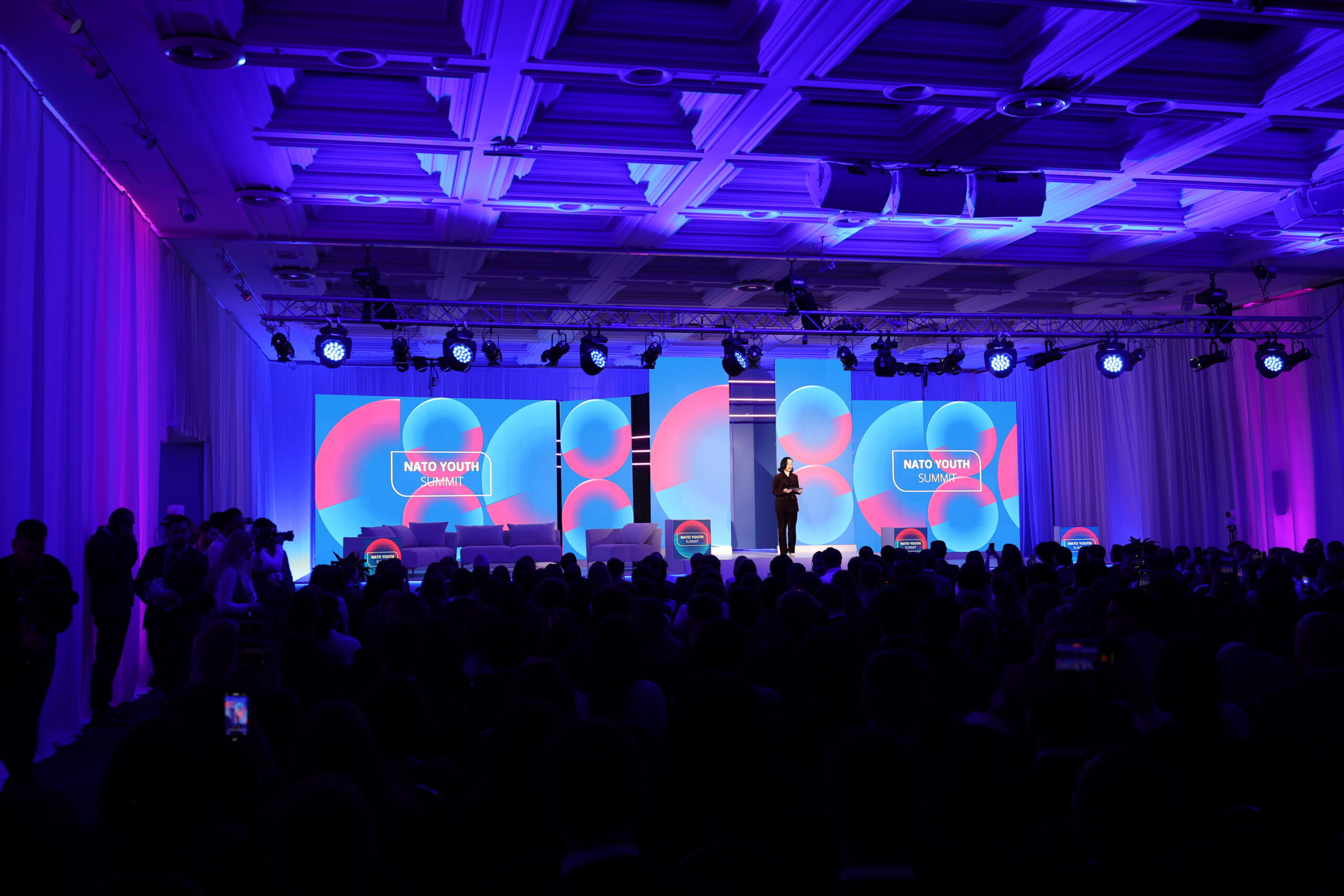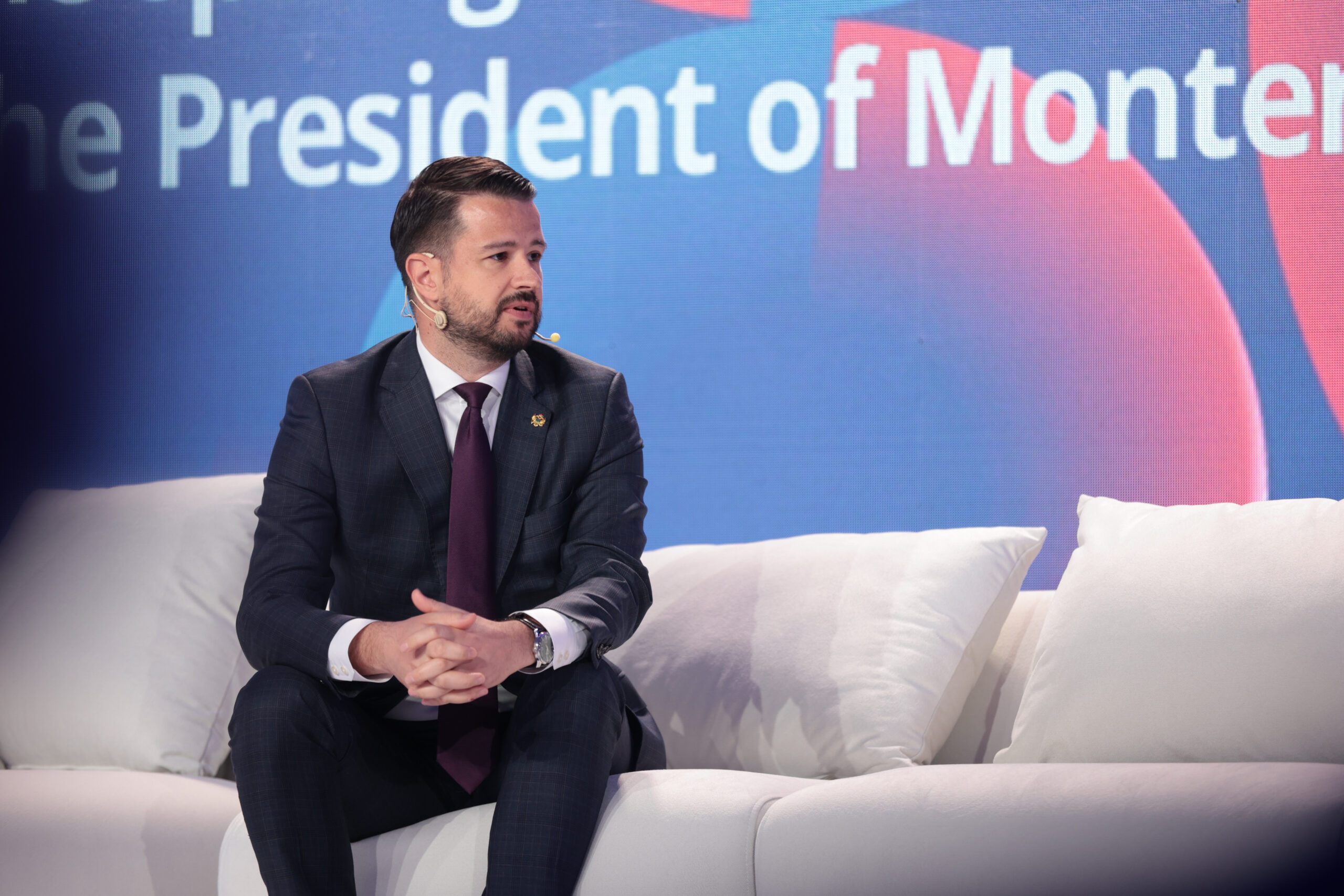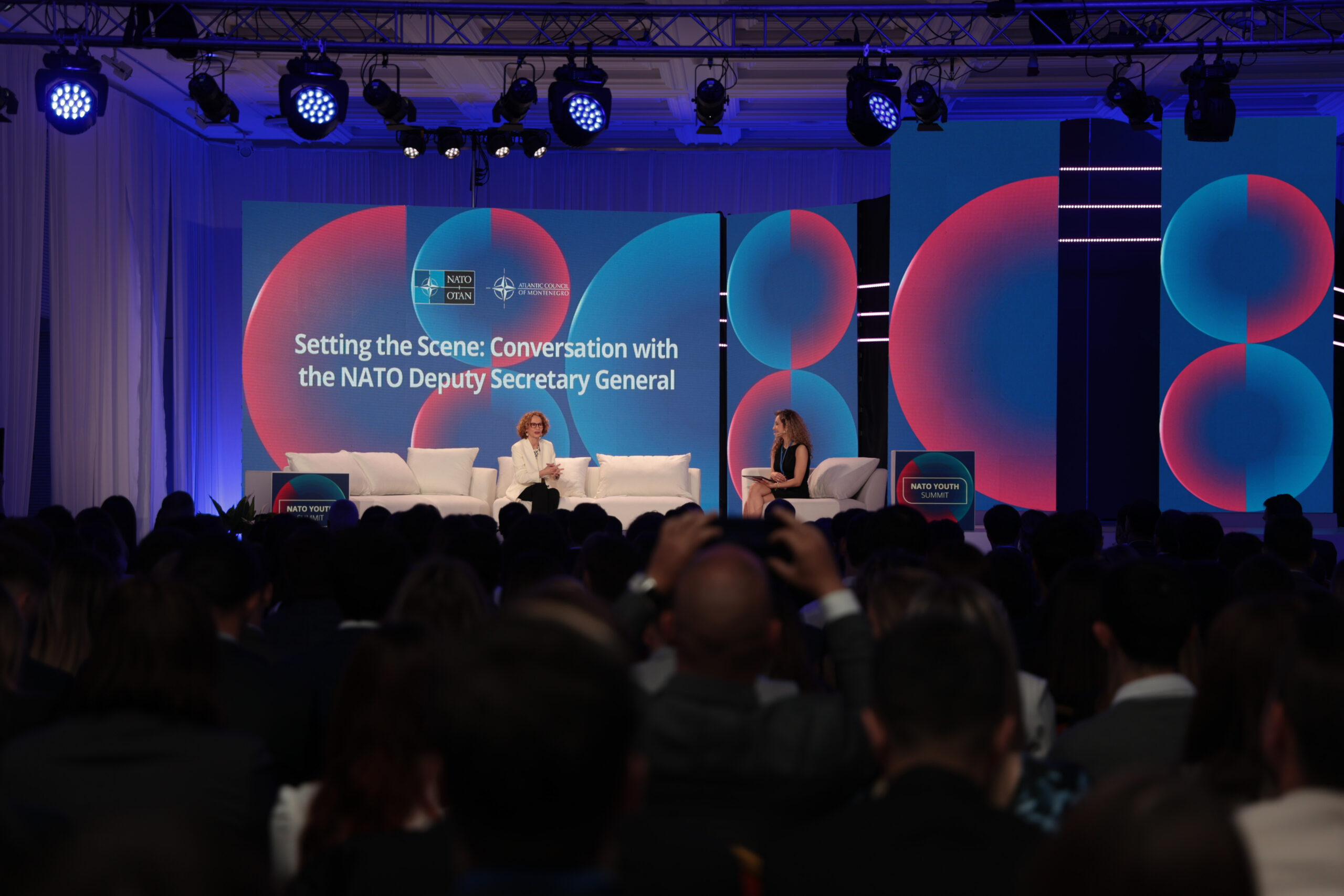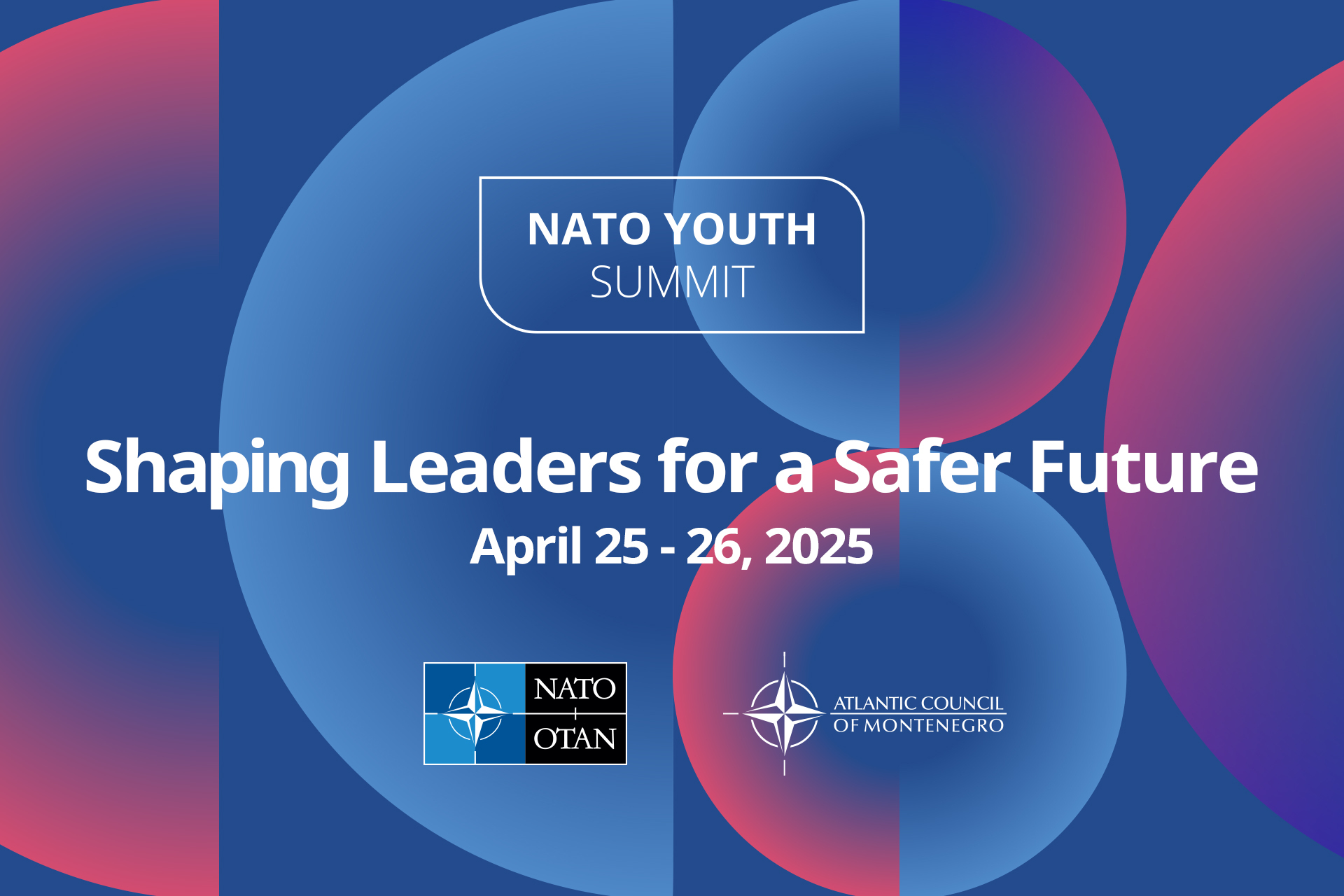The Atlantic Council of Montenegro organized a conference titled “The truth in the disinformation era; To what extent are we susceptible to this threat and how do we counter it?“ Two panel discussions on the topic of experiences, lessons learned and the importance of strategic partnerships in countering disinformation, as well as media literacy as a driver of social resistance to disinformation threats were aimed at raising the level of awareness of the global phenomenon of fake news that is increasingly present both in Montenegro and around the world.
In his opening statement, the President of the Atlantic Council of Montenegro, Dr Savo Kentera, pointed out that: “The openness of democratic societies became at the same time their weakest point in the modern hybrid warfare, openly exploited by Russia which has the intention of undermining those societies from within, by introducing chaos and destabilization. The Western Balkans are undoubtedly in the sphere of interest of the Russian Federation, and this country was attempting and is still attempting to destabilize this region through its activities and disinformation campaigns in a way that will undermine their democratic efforts, particularly of those who advocate for strengthening of democracy.” He stated that the intensity of spreading false information is remarkable and that further disinformation threats could be prevented by investments in employees and education. He also said that fake news is free speech, but that this does not deny the danger they pose for freedom of thought or democratic power.
If media which take one side and a certain stand for their own gain without verifying the truthfulness of the information, by creating a distorted public opinion are added to such a state of affairs, then it creates a situation that is solely favorable to those who wish to bring chaos into democratic systems. “We cannot expect Russia, which is founded on a good intelligence network, to give up hybrid warfare and stop interfering in the internal relations of countries that it considers its opponents,” Kentera stated.
He stressed that the constant increase in the number of fake news and shaken public confidence in journalism today constitute a crisis of freedom of speech. The president of the Atlantic Council of Montenegro believes that the openness of democratic societies is also their weakest point in the modern hybrid warfare: “What we can surely expect is that Russia will continue to position itself as a geopolitical opponent of the West, as long as Putin is in power. Closing eyes to these facts can only cause permanent damage to the Western world and to the entire system of values that we advocate for, as a democratic society.” Kentera said.
He believes that it is of great importance to encourage the public to take a critical stand against the news sources. It is also significant to focus on credible sources of information, on those who can be trusted, but also to gain the ability to assess the announcements on social networks.
Referring to the task of the Digital Forensic Center, Kentera stated that the center will try to reveal argument-based information, obtained through their research, on those who are misleading the public, their financiers and goals.
United States Ambassador to Montenegro, Judy Rising Reinke, spoke about the necessity of cooperation among the allies in the fight against spreading of fake news and underlined the importance of competences of young journalists and independent media outlets. She also highlighted that the public deserves to be aware and should protect itself from malign influence of fake news and disinformation. “United States will always support Montenegro and friends from the region in countering disinformation, whose goal is to cause instability, by providing tools and resources, hoping to empower the people in Montenegro who strive for democracy and peace”, she said.
“Foreign actors are still trying to use social media and technologies in order to open fronts and in effort to undermine democracy and key institutions,” the ambassador said, stressing that “Montenegro’s membership in NATO comes at a crucial moment, because Europe is the center of a geopolitical competition.”
She added that Montenegro must strengthen the rule of law, eradicate organized crime, and improve media freedom for journalists who, according to the ambassador, are the keepers of democracy. Rising Reinke said that Russia continues to use corrupt, covert techniques to destabilize the Western Balkans and that the troll army and those who spread disinformation continue to pose a direct threat to Montenegro’s path, now that it is about to join the European Union.
“These disinformation campaigns target institutions and have no boundaries. Therefore, we, as allies in NATO, must work together to map our forces in order to overcome these threats, “said Rising Reinke, adding that the Government of Montenegro is taking further steps to build resistance to disinformation.
Milan Jovanović, from the Atlantic Council of Montenegro, presented the work and the role of the Digital Forensic Center in identifying and revealing fake news as well as strengthening of media literacy in the society. Speaking of weapons for countering this global phenomenon, Chris Donelly, Director of the Institute for Statecraft, pointed out that the establishment of Digital Forensic Center provides a good example of how a small country can contribute to NATO and the European Union. “Key players on the global stage are trying to achieve their geopolitical objectives in different ways, and Russia is not the only one who uses hybrid warfare as a means of doing so”, he stressed.
The professor of literature, Božena Jelušić, spoke on the second panel dedicated to media literacy as the most strategically important mechanism, with the aim of raising the level of education of the public. She stated that “in order for media to be good they must have a good audience”, and that the Montenegrin public is countering problems because the consumers are prone to manipulation, and are prepared to forgive the lie to the media they trust.
The editor-in-chief of daily Pobjeda, Draško Đuranović, shared his experiences gathered from practice, saying that the Internet has changed ethics in journalism and that the greatest manipulation is achieved through sensational headlines, although they do not correspond to the content of the text itself. He added that the media can play a significant role, but that is extremely difficult in such a small market.
Program director of the independent daily newspaper Vijesti, Mihailo Jovović, believes that critical thinking is of key importance for media literacy, but that it barely exists in Montenegro as well as in the region. According to him, the main fault lies in the education system.




